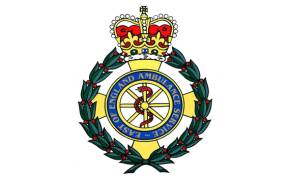
In February we made the first payment under the interim agreement between Ambulance Trusts and joint Trade Unions through the National Ambulance Strategic Partnership Forum to ensure overtime and additional basic pay are included in payments for holiday pay. This payment covered April 1st, 2021, to December 31st, 2021.
The payment to cover the period 1 January 2022 to 31 March 2022 is now being calculated for inclusion in the July payment run, and all qualifying staff should see this reflected in their July payslip.
The payment to cover the period 1 April 2022 to 30 June 2022 is planned to be made in the August payment run.
The payment to cover the period 1 July to 2022 to 30 September 2022 is planned to be made in the November payment run.
The payment to cover the period 1 October 2022 to 31 December 2022 is planned to be made in the February 2023 payment run.
These manual quarterly payments will continue until the implementation of the system & process amendments to the national NHS payroll system (ESR) which would enable this to be performed systematically.
In the meantime, we have included information regarding key features and FAQs at the bottom of this article, which you will have seen previously in December and February.
We will also add a section on this Interim agreement to the EAST24 site in the coming days.
Should you have any queries regarding your payments under this category, that are not answered in the FAQ’s or further details, then please email us on otannualleavepayment@eastamb.nhs.uk
Please put your assignment number in the subject of any emails sent to this email address.
Overtime and Additional Basic Pay Agreement key points:
The Interim agreement covers from 1 April 2021 to until 6 months after the technical ESR solution on Average Pay has been developed which will apply consistently across the NHS. Manual payments will continue until the Trust is satisfied that the ESR solution operates effectively.
Payments will arise for overtime or additional hours paid on substantive assignments.
Only substantive, fixed term, full and part-time employees under section 3 of Agenda for Change are covered by this agreement. Consistent with the NHS Staff Council agreement, bank assignments and hours worked on bank are not included.
Only during the interim agreement no regularity eligibility restriction is applied to individuals to demonstrate that overtime/ additional hours is regular for them.
A payment of 13% of the value paid of overtime/ additional hours will be made. That is overtime / additional hours paid in ESR in the months of calculation.
Payments in relation to Additional hours will be pensionable pay in line with the additional hours payments themselves.
Other regular payments
In addition to the national agreement, which relates to overtime and additional basic pay only, English Ambulance Trusts have reviewed other payments currently being made to staff.
As part of the interim pay arrangements until ESR is updated each individual Trust has considered whether there are other payments which are both regular enough, and which appear by their nature to be likely to be considered part of pay relevant to the calculation and payment of holiday pay as set out in Agenda for Change.
Within EEAST we have determined that the following payments will also be included in the interim agreement for holiday pay calculations moving forward from 1 April 2021:
Regularity is a key consideration of paying supplements to basic pay during annual leave and the expected ESR solution/ approach is that no payment is made where supplements are not regular. National guidance is anticipated on this when the Trust transitions from the interim agreement to the ESR approach.
Frequently Asked Questions in the Ambulance Sector
What is happening with the ESR solution? The implementation of the national ESR solution is identified across the sector as being many months off, and it is collectively recognised that an interim agreement is the practical way to ensure timely payments can be made. Agreement between Trade Unions and Ambulance Trusts has been reached to ensure the approach is fair and practical.
Why has a 13% multiplier been chosen? Until ESR is developed to enable holiday pay to be paid on an averaging approach a practicable solution which results in similar overall pay in the form of a multiplier allows for a timely payment approach. Trade Unions have agreed 13% based on average leave entitlements across the sector.
How do I know what I’ve been paid? The payment appears as a separate pay element on payslips referencing additional hours or overtime on annual leave.
How do I know what I’ve been paid for? The interim agreement payments are calculated on the value of overtime / additional hours, emergency work payments, and meal compensation break payments as recorded as paid in ESR and shown on payslips in the months covered. Adding the paid values on payslips for these elements in the period covered such as the January, February and March payslips, and multiplying this by 13%, will provide the value paid in the July payment run.
Are my pension deductions affected? Overtime is not pensionable and so the payment in connection with overtime is not pensionable. Additional basic pay is pensionable and therefore payments made in relation to additional basic pay will be pensionable. This may mean an increased level of pay assessed for pension deductions and the calculation of pension deduction category.
What happens if I take my overtime as TOIL? If you choose to take your overtime as TOIL then this overtime will not be taken into account in the calculations for a payment under the agreement. This is as Time off in lieu (TOIL) is taken instead of a payment for overtime.
I am a bank worker or have a bank assignment contract? The agreement only applies to substantive staff employed on Agenda for Change who receive overtime payments or additional basic pay.